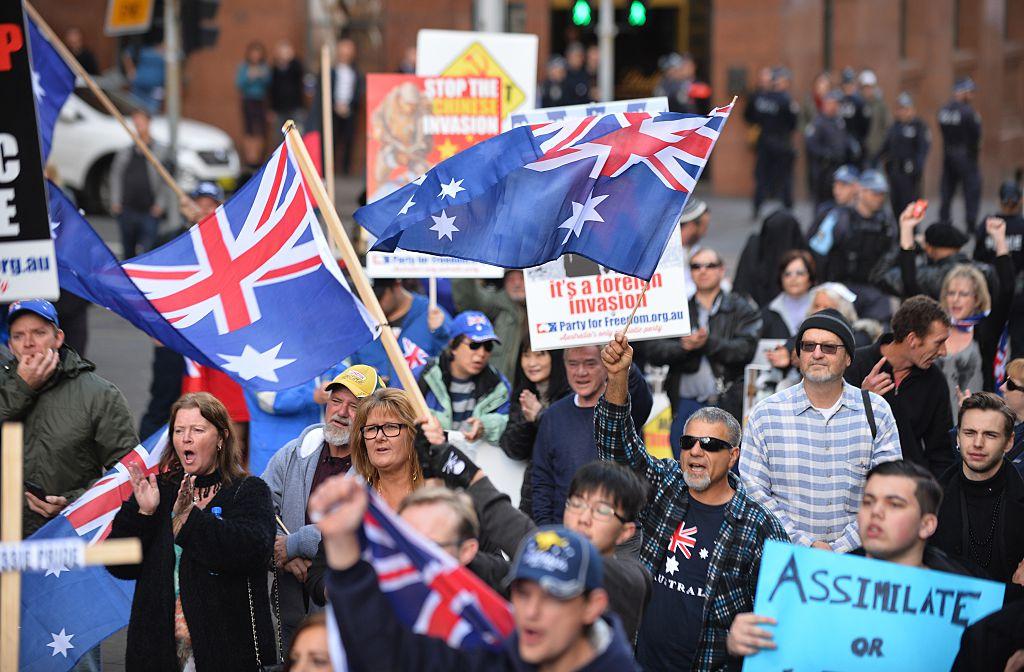What does social cohesion mean in Australia?
Posted By Gill Savage on September 6, 2021 @ 11:00
Our basis for thinking about social cohesion in Australia continues to be embedded in traditional multiculturalism. It is yet to catch up with the digital world where cyberhate, foreign interference and violent extremism thrive.
Social cohesion combines with economic prosperity to drive a secure and resilient nation. The benefits are significant; reduced economic isolation and economic exclusion, and enhanced economic participation are just a few of them.
Inclusion and social cohesion have been described [1] as the ‘the bonding between people and groups or “glue” that binds people in positive relationships’. These bonds are a commonly invoked theme in regional communities, but loneliness is increasing in our high-density cities. This is apparent as we navigate our way through the Covid-19 pandemic and the increasing concern that we’re becoming more distant as we deal with the resultant sensory overload [1].
The Australian Human Rights Commission defines [2] social cohesion in the context of a society that ‘works towards the wellbeing of all its members, fights exclusion and marginalisation, creates a sense of belonging, promotes trust and offers its members the opportunity of upward mobility’.
Prime Minister Scott Morrison frames things differently. In his address to the OECD in June, he said [3] our ‘economic model as market based economies, business led economies, is what enables social cohesion to be most successful’. And he told [4] participants at a multicultural roundtable last October that ‘if we focus on the things that actually enable communities to succeed and individuals to succeed, then multiculturalism and social cohesion is the by-product of that’. Morrison went on to emphasise that low English-language capability can be an impediment to economic and social participation.
This is a multicultural framing from the past but one that is consistently reinforced through the government’s immigration messaging.
The Scanlon Foundation’s Mapping social cohesion [5] survey reports provide details of attitudes in Australia towards specific national groups. In the 2013 survey, 13% of respondents indicated negative views of Chinese nationals; by July 2020, the proportion had increased to 47%. While negative views of Iraqi and Sudanese nationals were higher at 49% and 56%, the rise in negative views of Chinese nationals was considerable. It’s also significant that 60% of respondents to the July 2020 survey agreed that immigrants should be expected to adopt ‘Australian values’.
We know that the link between social cohesion and economic prosperity is strong. We experience it as second- and third-order impacts of defence spending [6], particularly in remote parts of the country, and we know how it can achieve ‘peace, stability and prosperity’ [7] through a strengthened democracy and enhanced resilience.
However, some claim that aiming to achieve social cohesion sets up barriers to free speech.
Around 62% [8] of Australians use social media daily. The small number of people and groups engaging in hate speech or messaging of an extreme or violent nature through Facebook, Twitter and other platforms know that they can have a fast and devastating impact. They’d argue that they are exercising their right of free speech.
Violent extremism is on the rise and more visible given the ease of engagement in a digital world. Extreme messaging is reaffirmed through online ‘echo chambers’ [8] and can desensitise individuals to violent messages and extreme ideology and imagery.
However, Australia also continues to link social cohesion with countering violent extremism programs. In fact, these programs are generally described [9] as ‘broad-based social cohesion measures through to rehabilitation of terrorist offenders’.
ASPI’s Danielle Cave and Jake Wallis recently highlighted that disinformation and cyber-enabled foreign interference [10] target the fissures of social cohesion in democracies. They acknowledged recent efforts to rebuild capability to counter foreign interference but said governments are struggling with a ‘different set of complicated challenges from online attribution and enforcement, to protecting citizens from harassment and threats from foreign actors’.
The Australian Human Rights Commission has posed the question about whether it’s possible for democratic societies to ‘contain diverse populations while still maintaining harmony’. The ultimate goal, of course, is to (at least) maintain, if not enhance, social cohesion.
So how should Australia frame social cohesion now and into the future? And how do we ensure that it is prioritised in its own right and not merely included as an input to economic prosperity?
ASPI’s John Coyne noted [11] recently in The Strategist that governments need to ‘develop a social-cohesion initiative dealing directly with the divisive impacts of increased economic inequality as well as the compromises made in responding to Covid-19’.
An alternative view is offered by Andrew Markus in research he carried out with the Scanlon Foundation which outlined five domains [12] for social cohesion in Australia. They are ‘belonging’ to build pride, ‘worth’ to provide satisfaction, ‘social justice and equity’ to give economic opportunity, ‘participation’ for political engagement, and ‘acceptance and rejection’ as setting levels of discrimination.
While these domains provide an opportunity to measure social cohesion beyond the traditional multicultural dimensions, they don’t provide guidance on how much ‘free speech’ is appropriate and helpful for a democratic society.
Article printed from The Strategist: https://aspistrategist.ru
URL to article: /what-does-social-cohesion-mean-in-australia/
URLs in this post:
[1] described: https://reader.elsevier.com/reader/sd/pii/S1877042814054937?token=7829A121558DB10624E8BB51CFC0568C41EEB7FDBB3E077B4B21F04D7E4D067FC6BC0781EE56F4CB6603AF03AAAA2439&originRegion=us-east-1&originCreation=20210714232904
[2] defines: https://humanrights.gov.au/our-work/race-discrimination/publications/building-social-cohesion-our-communities
[3] said: https://www.pm.gov.au/media/address-oecd-council-paris-france
[4] told: https://www.pm.gov.au/media/address-australia-united-kingdom-chamber-commerce-london-uk
[5] Mapping social cohesion: https://scanloninstitute.org.au/scanlon-mapping-social-cohesion-research
[6] second- and third-order impacts of defence spending: /thinking-big-about-northern-australias-national-security-posture/
[7] ‘peace, stability and prosperity’: https://www.pm.gov.au/media/address-launch-2020-defence-strategic-update
[8] 62%: https://www.livingsafetogether.gov.au/Documents/preventing-violent-extremism-and-radicalisation-in-australia.pdf
[9] described: https://www.aph.gov.au/About_Parliament/Parliamentary_Departments/Parliamentary_Library/pubs/rp/rp1718/Quick_Guides/CounterViolentExtremism
[10] disinformation and cyber-enabled foreign interference: /defending-democracies-from-disinformation-and-cyber-enabled-foreign-interference/
[11] noted: /enforcing-covid-19-restrictions-could-erode-public-trust-in-police/
[12] five domains: https://scanloninstitute.org.au/sites/default/files/2021-02/SC2020%20Report%20Final.pdf
Click here to print.
